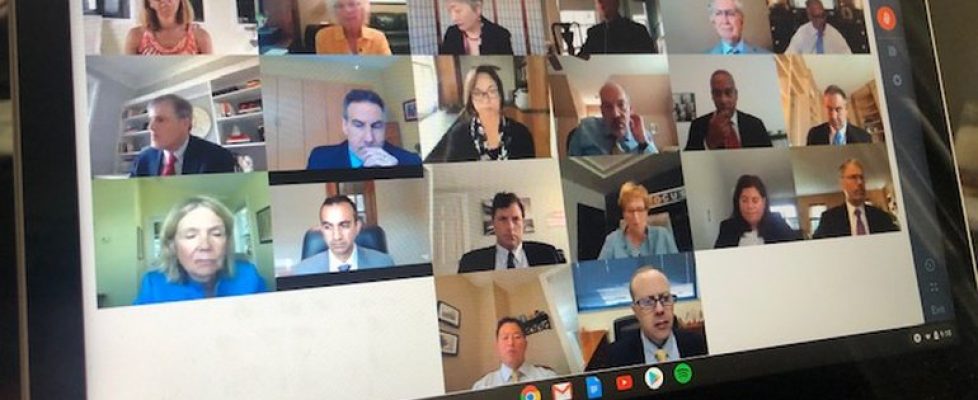MedPAC commissioners hint at telehealth policies that may stick post-COVID-19
Dive Brief:
- Members of the congressional advisory group Medicare Payment Advisory Commission agree telehealth is here to stay, but are concerned about how to improve access without also running up substantial costs in the Medicare program.
- The group weighed various Medicare telehealth payment policies that could become permanent after the COVID-19 public health emergency ends during a virtual meeting Friday. Many telehealth regulations have been relaxed due to the pandemic, and MedPAC is set to advise Congress on policies to adopt permanently moving forward.
- Overall, commissioners seemed to acknowledge that there’s no turning back now, despite an earlier lack of embrace or avoidance of the digital space. But the government is walking a thin tightrope between expanding access and the potentially steep cost of doing so in the cash-strapped program, while being mindful of potential fraud and excessive use.
Dive Insight:
The pandemic has dramatically accelerated the use of telehealth services among healthcare consumers, including older adults with Medicare coverage.
Telehealth usage among Medicare members surged during the initial onset of the pandemic. About 1.3 million Medicare members received some sort of virtual service in the week ended April 18, a stunning increase from about a month prior when just 11,000 members received virtual services in the week ended March 7.
Federal regulators relaxed many rules and payment policies surrounding telehealth to provide an alternative avenue to care as the novel coronavirus either temporarily shut down facilities or deterred consumers from an in-person visit.
The key question for the industry has been what regulators and lawmakers will allow to continue after the public health emergency draws to a close. Most agree it’ll be hard to reverse course, now that so many consumers are taking advantage of increased access to virtual care.
“Pandora’s box is open. Telehealth is a core digital strategy for healthcare that will be an expectation from our beneficiaries going forward. So how does MedPAC respond to this watershed moment? I strongly recommend we embrace it,” Susan Thompson, a MedPAC commissioner and interim CEO of UnityPoint Health, said Friday.
During the meeting, commissioners seemed more willing to allow telehealth flexibilities if they were to be delivered under an advanced alternative payment model, as opposed to fee-for-service. However, there were overriding worries about equity and access to these services.
Their concerns are not without merit. Two recent studies in JAMA showed nearly a quarter of older adults with Medicare lacked access to a computer with high-speed internet and a smartphone with a wireless data plan. The disparity is particularly acute among traditionally underserved populations, including low-income individuals and people living in rural areas.
Some MedPAC commissioners were concerned potential incentives to use telehealth could unwittingly exacerbate the digital divide and encouraged ongoing research into the impact of these future policies, with a focus on cost implications as well.
Commissioners also pushed back on staff suggestions to discontinue coverage for audio-only services. The Trump administration has temporarily expanded payment for visits conducted solely over the phone. Providers serving a large number of Medicare beneficiaries say it’s been a lifeline to providing consistent care to their patients, especially those without consistent access to the high-quality broadband internet access required for a video visit.
However, CMS, wary of potential quality differences between audio-only visits and those with a visual component, declined to permanently allow audio-only reimbursement in the physician fee schedule for 2021. That rule is not yet final, and covered services could change.
Other commissioners aired concerns that expanding access to telehealth could fuel excessive use of low-value services, and said coverage should be reserved for or targeted toward high-risk populations with conditions that require constant management, like diabetes.
One item seemed off the table completely: allowing providers to use non-HIPAA compliant video platforms past the scope of the emergency. During the public health crisis, providers have not been fined for using more consumer-centric platforms that aren’t compliant with the privacy law, like Skype or Facetime, instead of safer, pricier platforms like those peddled by vendors Teladoc and Amwell.
Allowing the unprotected technology after the crisis seemed like a moot point, with Commissioner Karen DeSalvo, chief health officer at Google and former HHS official, saying there was no need to even discuss it further.
Rebecca Pifer contributed reporting.

